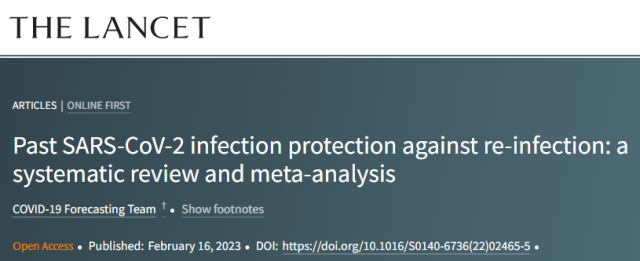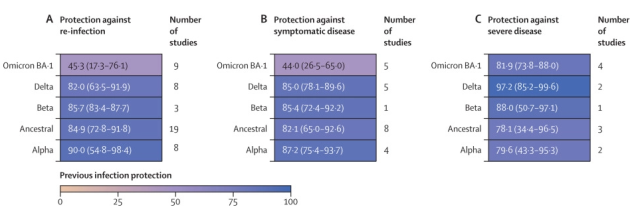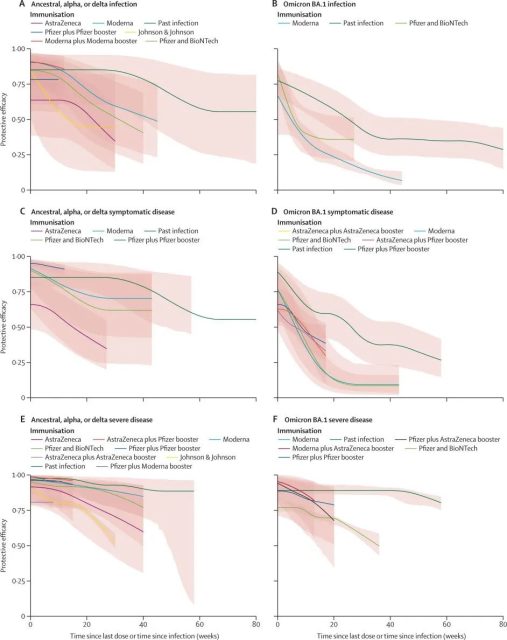How long can you avoid reinfection after a COVID-19 infection?
- Normal Liver Cells Found to Promote Cancer Metastasis to the Liver
- Nearly 80% Complete Remission: Breakthrough in ADC Anti-Tumor Treatment
- Vaccination Against Common Diseases May Prevent Dementia!
- New Alzheimer’s Disease (AD) Diagnosis and Staging Criteria
- Breakthrough in Alzheimer’s Disease: New Nasal Spray Halts Cognitive Decline by Targeting Toxic Protein
- Can the Tap Water at the Paris Olympics be Drunk Directly?
How long can you avoid reinfection after a COVID-19 infection?
- Should China be held legally responsible for the US’s $18 trillion COVID losses?
- CT Radiation Exposure Linked to Blood Cancer in Children and Adolescents
- FDA has mandated a top-level black box warning for all marketed CAR-T therapies
- Can people with high blood pressure eat peanuts?
- What is the difference between dopamine and dobutamine?
- How long can the patient live after heart stent surgery?
How long can you avoid reinfection after a COVID-19 infection?
The Lancet’s latest article: How long can you avoid reinfection after a COVID-19 infection? Comprehensive analysis of reinfection and severe risk.
The new coronavirus usually infects humans through the respiratory tract and causes damage to the respiratory system and various organs of the human body.
Since the first outbreak at the end of 2019, the new coronavirus has had a great negative impact on the world economy and society.
With the large-scale epidemic of the new coronavirus, new virus mutants continue to emerge, such as Alpha, Beta, Delta, Omicron, etc., some of which have stronger infection ability or stronger immune escape ability.
It is very important to understand the effectiveness of infection, severe disease, and death prevention of the COVID-19 after infection with different strains.
On February 16, 2023, The Lancet published a systematic review analysis entitled ” Past SARS-CoV-2 infection protection against re-infection: a systematic review and meta-analysis” .
The study shows that after a single infection with the COVID-19, the protection against severe illness and death lasts for at least 10 months, and the risk reduction is as high as 90% .
Although protection from past infection wanes over time, the level of protection against reinfection, severity of symptoms, and severe disease appears to be at least as durable as, if not greater than, that provided by 2 doses of the mRNA vaccine.

In the study, the researchers systematically reviewed 65 studies from 19 different countries that used a variety of methods to determine past infection symptoms, variants, time since infection, and protection over time .
The study evaluated the preventive effect of past infection on future reinfection, infection symptoms, and severe disease rate of the COVID-19.
Overall, immunity after infection with COVID-19 provides strong, long-lasting protection against future infections, reducing the risk of severe illness and death .
For reinfection, the protection against reinfection by infection with early strains was high, and the average estimate of protection against reinfection with original strain, Alpha, Beta, and Delta variants was greater than 82%.
In contrast, infection with earlier strains had a greatly reduced protective effect against reinfection with Omicron BA.1, with a combined effectiveness of only 45.3%, and an overall effective rate of 44% against BA.1 symptomatic disease.
Protection against reinfection for the original strain, Alpha, and Delta variants all decreased over time, but remained at 78.6% at 40 weeks.
In contrast, the protection of the BA.1 variant against reinfection declined more rapidly, an estimated 36.1% at 40 weeks.
For prevention of symptoms of infection, the original strain, Alpha, Delta variants had a protection rate of 78.4% at 40 weeks, while BA.1 had a lower protection against symptomatic disease, 37.7% at 40 weeks.
Importantly, all variants were highly protective against severe disease, with 90.2% protection for the original strain, Alpha, Delta variants and 88.9% protection for BA.1 at 40 weeks .
Despite insufficient data, protection against severe disease remained relatively high for up to 1 year after initial infection with all variants.

The protective effect of early infection on reinfection, symptoms and severe disease
Although protection from past infection wanes over time, the level of protection against reinfection, severity of symptoms, and severity of illness appears to be at least as durable as, if not more durable than, that provided by two doses of the mRNA vaccine, the researchers said . high .
However, the researchers emphasized that given the risk of contracting the COVID-19, especially in the unvaccinated population, vaccination is the preferred way to obtain immunity.
 The protective effect of early infection compared with vaccination with mRNA vaccine
The protective effect of early infection compared with vaccination with mRNA vaccine
Earlier studies also corroborated this research, and the immunity generated by infection includes humoral and cellular responses, T cell immunity and memory B cell responses to the COVID-19 spike protein antigen are diverse, which may lead to longer-lasting immunity and Enhanced protection against variants.
Crossover variants of the BA.1 variant and its sublines were less immune than other variants, further supporting the role of spike protein mutations in Omicron evasion of immunity.
Taken together, the results suggest that immunity from COVID-19 infection provides substantial protection against infection from pre-BA.1 variants, with up to 90% protection against severe disease at 40 weeks.
Over time, the variants provided at least as much protection against past infections as, if not greater than, that provided by two doses of the mRNA vaccine.
Paper link:
https://doi.org/10.1016/S0140-6736(22)02465-5
How long can you avoid reinfection after a COVID-19 infection?
(source:internet, reference only)
Disclaimer of medicaltrend.org
Important Note: The information provided is for informational purposes only and should not be considered as medical advice.



